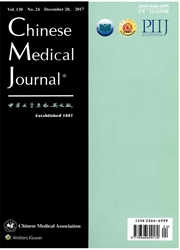

 中文摘要:
中文摘要:
背景干细胞移植被显示了在扩大心肌症上有有益的效果。然而,为到在扩大心肌症的心脏的织物的干细胞 homing 的机制还没是 elucidated.Methods 间充质的干细胞从老鼠骨头髓被获得,在 vitro 膨胀了,并且用 99mTc 标记 .Cardiomyopathy 模特儿被 doxorubicin 在老鼠劝诱。标记房间的 99mTc 在心肌症和控制老鼠被灌输进左室。在注射以后的十六个小时,动物被牺牲,不同纸巾被收获测量特定的放射性。由即时聚合酶链反应和 immunohistochemistry 的使用,为在心脏的织物的 stromal-cell-derived 因素 1 的 Mrna 和蛋白质表情是把间充质的干细胞的效率标记的 measured.Results (70.0
 英文摘要:
英文摘要:
Background Stem cell transplantation has been shown to have beneficial effects on dilated cardiomyopathy. However, mechanism for stem cell homing to cardiac tissue in dilated cardiomyopathy has not yet been elucidated. Methods Mesenchymal stem cells were obtained from rat bone marrow, expanded in vitro, and labeled with 99mmc. Cardiomyopathy model was induced by doxorubicin in rats. 9ernTC labeled cells were infused into the left ventricles in cardiomyopathy and control rats. Sixteen hours after injection, animals were sacrificed and different tissues were harvested to measure specific radioactivity. By use of real-time polymerase chain reaction and immunohistochemistry, mRNA and protein expressions for stromal-cell-derived factor 1 in cardiac tissue were measured. Results Labeling efficiency of mesenchymal stem cells was (70.0±11.2)%. Sixteen hours after mesenchymal stem cell transplantation, the heart-to-muscle radioactivity ratio was increased significantly in cardiomyopathy hearts as compared to control hearts. Both mRNA and protein expressions of cardiomyopathy hearts as compared with control hearts. Conclusion In dilated cardiomyopathy induced by doxorubicin in heart may induce mesenchymal stem cells home to the heart. stromal-cell-derived factor 1 were up-regulated in up-regulated expression of stromal-cell-derived factor I
 同期刊论文项目
同期刊论文项目
 同项目期刊论文
同项目期刊论文
 期刊信息
期刊信息
